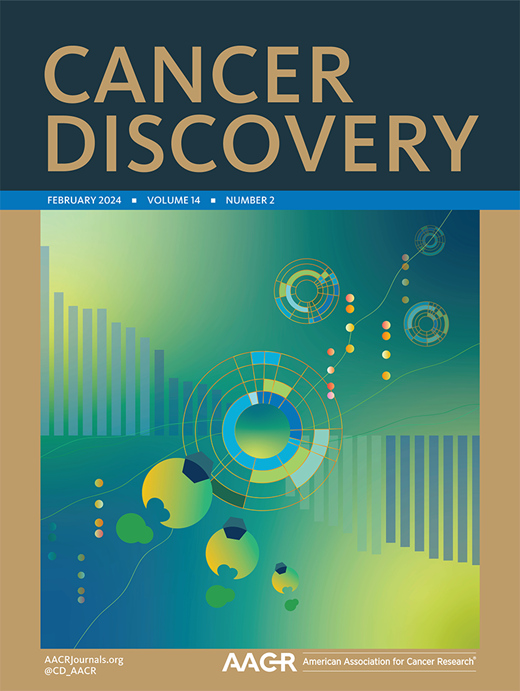分层医学儿科:细胞游离DNA和序列肿瘤测序确定亚型特异性癌症进化和表观遗传状态
IF 29.7
1区 医学
Q1 ONCOLOGY
引用次数: 0
摘要
我们对儿童期复发和进展期实体瘤患者的匹配诊断-复发肿瘤组织和匹配血浆衍生细胞游离 DNA(cfDNA)进行了大型异质队列分析。组织和cfDNA测序结果一致,如果存在足够的循环肿瘤衍生DNA(ctDNA),后者能捕获更广泛的突变等位基因谱和更高程度的肿瘤内异质性。连续肿瘤测序确定了复发的推定驱动因素,其中表观遗传驱动因素的改变是一个共同特征。表观遗传学改变是许多儿童癌症的常见驱动因素,因此对cfDNA进行片段组学分析,确定了肿瘤特异性表观遗传学状态和染色质中可访问的转录因子结合位点。这项研究利用了一个大型且标注齐全的侵袭性儿童恶性肿瘤基因组数据集,确定了儿童癌症复发的基因组和表观遗传驱动因素,并强调了 cfDNA 分析在捕捉肿瘤内部异质性和癌细胞表观遗传状态方面的强大功能和实用性。本文章由计算机程序翻译,如有差异,请以英文原文为准。
Stratified Medicine Paediatrics: Cell free DNA and serial tumour sequencing identifies subtype specific cancer evolution and epigenetic states
We profiled a large heterogenous cohort of matched diagnostic-relapse tumour tissue and paired plasma-derived cell free DNA (cfDNA) from patients with relapsed and progressive solid tumours of childhood. Tissue and cfDNA sequencing results were concordant, with a wider spectrum of mutant alleles and higher degree of intra-tumour heterogeneity captured by the latter, if sufficient circulating tumour-derived DNA (ctDNA) was present. Serial tumour sequencing identified putative drivers of relapse, with alterations in epigenetic drivers being a common feature. In keeping with epigenetic alterations being a common driver of many childhood cancers, fragmentomics analysis of cfDNA identified tumour-specific epigenetic states and transcription factor binding sites accessible in chromatin. This study leverages a large and well-annotated genomic dataset of aggressive childhood malignancies, identifies genomic and epigenetic drivers of childhood cancer relapse, and highlights the power and practicality of cfDNA analysis to capture both intra-tumoural heterogeneity and the epigenetic state of cancer cells.
求助全文
通过发布文献求助,成功后即可免费获取论文全文。
去求助
来源期刊

Cancer discovery
ONCOLOGY-
CiteScore
22.90
自引率
1.40%
发文量
838
审稿时长
6-12 weeks
期刊介绍:
Cancer Discovery publishes high-impact, peer-reviewed articles detailing significant advances in both research and clinical trials. Serving as a premier cancer information resource, the journal also features Review Articles, Perspectives, Commentaries, News stories, and Research Watch summaries to keep readers abreast of the latest findings in the field. Covering a wide range of topics, from laboratory research to clinical trials and epidemiologic studies, Cancer Discovery spans the entire spectrum of cancer research and medicine.
 求助内容:
求助内容: 应助结果提醒方式:
应助结果提醒方式:


